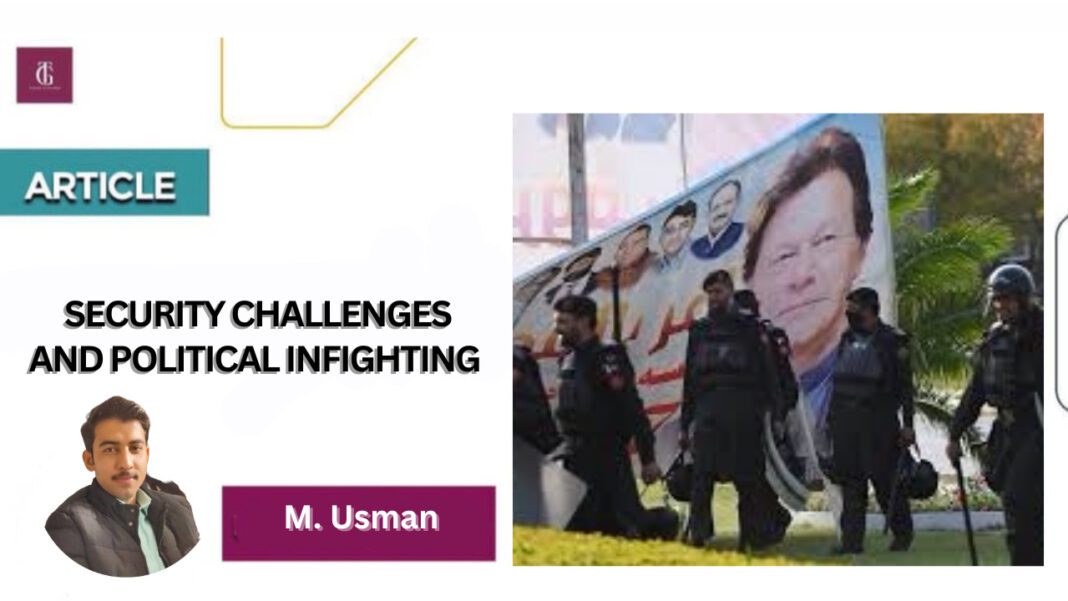The news of our gallant officers and soldiers being killed or seriously wounded while defending the borders is not receiving the attention it deserves because it is lost in the haze of political infighting and perilous economic conditions. Truly, the Tehreek-I-Taliban Pakistan keeps on representing a serious security challenge. Roused by the progress of Taliban in Afghanistan the TTP is attempting to make a territory in specific areas of ancestral belt and in Smack where it has plans to force its adaptation of Islam.
The TTP has been getting bolder in its attacks on civilian and military targets all over the country for a few months. However, Pakistan is not Afghanistan, and the military has largely succeeded in destroying the majority of TTP hideouts and driving them back with the full support of the local populace. However, the TTP’s activities were ignored by the Taliban government in Afghanistan until recently.
It gave them free rein to operate in Afghanistan and launch attacks against Pakistan because they were comrades in arms. Pakistan’s understated threat that Afghanistan would be forced to retaliate against them even if it meant crossing the border appears to have been registered and taken seriously.
However, the unfortunate aspect is that the country’s major issues, such as the economy, security, and preparations for national elections, have been put on hold because of the government and opposition’s mutual animosity.
Until recently, opposition leader Imran Khan was the most prominent player on the political stage. Since he was ousted from power in the beginning of 2022 through a no-confidence motion in the parliament and lost the support of the military leadership, he has been on the streets agitating with his fervent, mostly young followers up until recently. The raucous behavior of his employees and his rampage at the Corp Commander’s official residence in Lahore have further irritated the army leadership. Numerous of his belligerent followers have been detained.
Seeing no prompt possibilities of Khan getting back in the game, there has been a mass departure of party stalwarts. Khan’s mismanagement of the economy and his mistaken belief that he can ignore the military’s advice and their priorities were the primary reasons for his removal. Many also disapproved of the events of May 9 and were disassociated from them. Ironically, his rise to power in 2018 and subsequent three and a half years were made possible by the support of the army leadership. Khan’s chances of regaining power have sharply diminished because of the army’s withdrawal of support due to dissatisfaction with the PTI’s performance.
It Is suspicious if Khan could draw any examples from what he and the nation has gone through during his residency as head of the state and from that point forward as a resistance chief. His strong ego and self-righteousness are his biggest flaws. Absence of regard for the resistance, especially its chiefs, and dismissal for fundamental popularity-based standards and culture have come his direction in prevailing to earn a greater part in parliament.
Khan’s extreme abhorrence of resistance administration and his absolute refusal to associate with them or sit in parliament further debilitated the vote-based system and reinforced rather the force of the military and legal executive. Additionally, his latent support for violence’s return has backfired.
Also, erratic was Khan’s foreign policy management. His initial claim that the US was to blame for his removal from the PM’s Office and subsequent retractions did not serve the countries or his own interests and put his expatriate supporters in an awkward position. Strangely, senators and human rights groups in the United States have expressed concern that he be dealt with in accordance with the law.
Recent events also offer leadership lessons for the PML-N and PPP. They must primarily rely on sound governance and engage in performance-based politics. Putting the people’s well-being first and relying on the judiciary or security establishment weakens democracy. However, this would necessitate a significant reorganization of political party power structures. If contestants are given equal opportunities, dynamic dominance in parties is acceptable. It is additionally considering a legitimate concern for those individuals from the family to guarantee straightforwardness in their races like the case in a few mature vote-based systems like the US and England.
Apart from working toward political stability, it is equally important for the current and future governments to focus on improving the security situation. It is necessary to deal with the TTP and other militant groups with resolve. By and by, their exercises and area of impact appear to be on the ascent. Fundamental to managing hostility is financial improvement and working on political consciousness of individuals.
The government should not postpone elections in the hope that doing so will assist in their rise to power. Given how bad things are getting, this would make things worse. The government is frantically seeking the revival of the IMF agreement as a last resort to prevent financial collapse as the economy is on the verge of bankruptcy. In these circumstances, the finance minister’s brave face does not help. There is very little reason to delay announcing an election date, which is the right course of action.
However, holding elections on their own will not be sufficient unless political parties, once in power, seriously work to improve the economy, which has been declining in recent years. Furthermore, the way it is being handled, as previously mentioned, does not support optimism. Domestic growth is sluggish, and productivity is falling. It is best for the government to concentrate on institutional development rather than wasting national resources and valuable time on bringing down opponents. In these trying times, it would be easier to steer the country if it were in the hands of a political party or coalition that has widespread support. We need free and fair elections to accomplish this.
Muhammad Usman.
Student at the School of Politics and International Relations Quaid I Azam University Islamabad.






